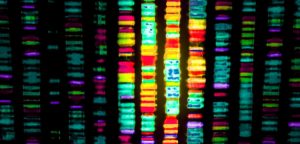The Life Sciences and the modern Medicine are currently experiencing a dramatic development fueled by the genomic revolution of single-cell genomics. The technological achievement of single-cell RNA sequencing (or short scRNA-seq) allows for the first time in history to analyze the genetic expression of single cells. Thereby it has opened the door for a completely new market of personalized and precision medicine, which is estimated to reach a volume of five billion US$ by 2025. The Comma Soft AG as a strong partner and expert in Data Science and solutions in the field of Artificial Intelligence (AI) is actively taking part in this market. Furthermore, Comma Soft is building bridges between academia and industry and, thus, fosters translation and promotes knowledge transfer across sectors.
For the first time in history, it is possible to study the genetic expression of single cells
Every single of the approximately 37 trillion cells in our body carries the same genetic information. Yet, every cell is unique. They divide into many different cell classes and types – nerve cells, muscle cells, skin cells, immune cells and more – each of which with specific morphologies and tasks within our body. On top of that, there are a plethora of subtypes and cell states that are still not understood and which only became observable with help of single-cell genomics.
The root cause for the vast amount of different cell types – despite of them having the same underlying genetic information – lies in the expression of this genetic information. In fact, many if not most of the 25,000 human genes remain inactive within one cell and only the set of active genes defines the so-called phenotype, which is the set of observable individual traits and characteristics of a cell. Single-cell genomics now makes it possible to detect and analyze the genetic expression of each single cell. This enables deep insights into the composition of tissue, the interaction between cells, and into the evolution of dynamic biochemical processes on the resolution of single cells.




